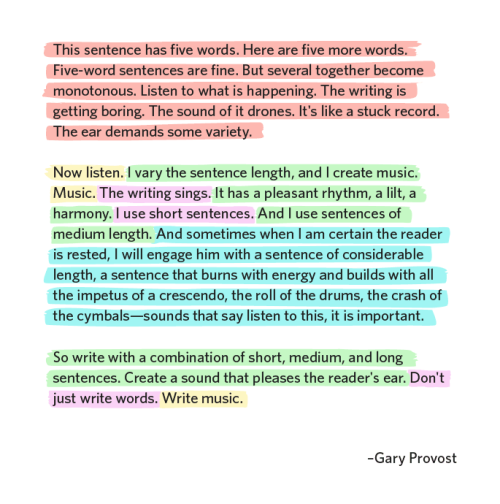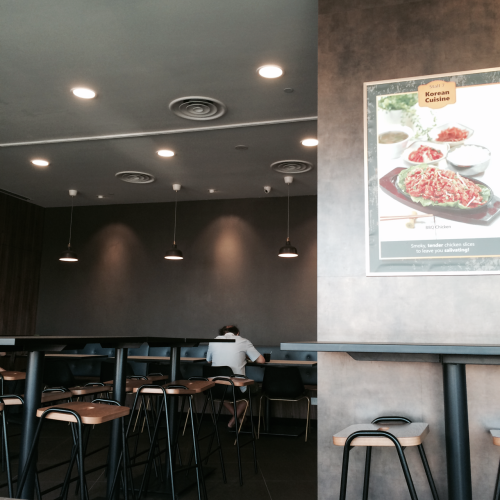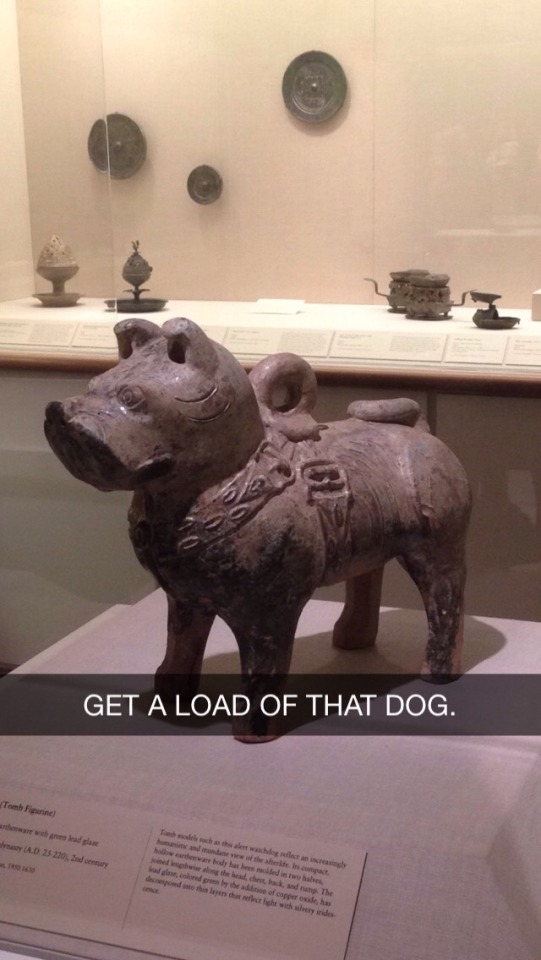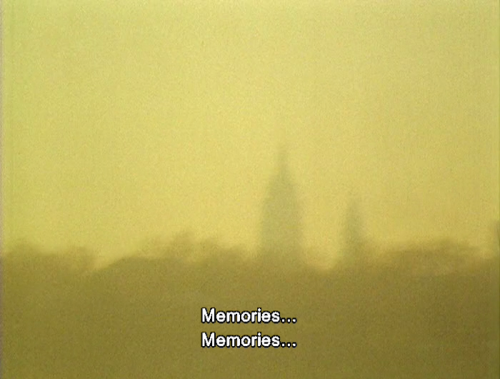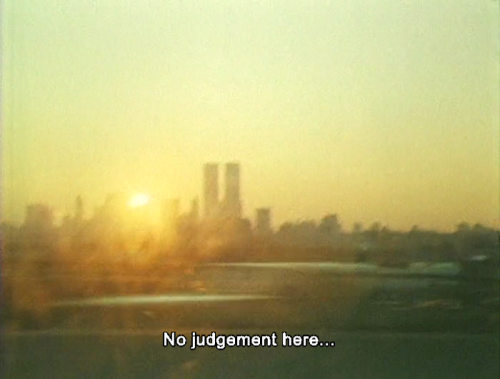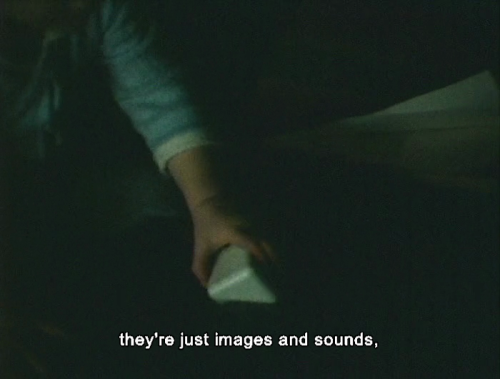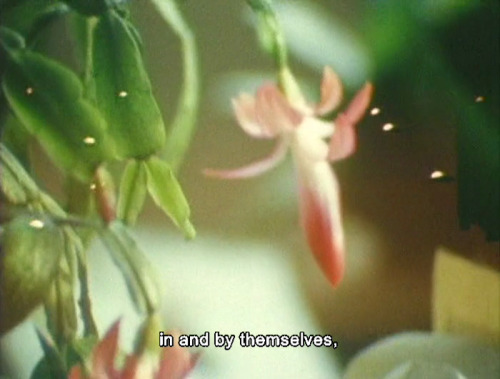"To awaken my spirit through hard work and dedicate my life to knowledge... What do you seek?"
229 posts
Latest Posts by theidlerhour - Page 7



THIS IS REBLOG RELEVANT FOR ONLY TODAY IN THE WHOLE OF HUMAN HISTORY AND ITS FUTURE


see-linewoman
by Jerrod La Rue
tips on how to rehearse your instrument
okay, so, after ages of procrastination, here it is. My rehearsal tips for classical music. Mostly for piano, but also other instruments, especially woodwinds, since i’m also playing the flute! If you have anything to add to the list, just don’t hesitate :)
1. Prepare yourself. Yep. Even in music, this is an important step. Turn off your electronic devices, they’ll only distract you and you won’t need them - at least not for classical piano rehearsal. Get all of your sheet music together! You can also get yourself a glass or a bottle of water (Especially for wind instruments!), but make sure that the instrument won’t get any damage!
2. Warming up. This is so important and it’ll help you to improve your tone (winds) and your style. I recommend doing scales and arpeggios in different versions - you’ll always need them. Also, try out different breathing techniques if you’re playing a wind instrument, such as circular breathing. However, try to mix it up. Don’t do the same stuff every day because you’ll eventually loose interest in what you’re doing. Be creative! Don’t forget that music is art!
3. Don’t try to play all of your pieces in one day. What I wanna say is: If you have 3 pieces to practise - for example a Bach, a Beethoven sonata and another piece, don’t do all of them in the same day. Practice two of them the 1st day after your rehearsal, then two the next day and the day after that another two. This way, it’ll be a nice circle and you still practiced everything in the end. It’s the same with studying, really. Try to make a rehearsal plan. Also, if you only have to practise one piece, don’t just play it from the beginning ‘till the end. Do the same. Play 3 lines the first day, maybe 4 the next and maybe 2 the day after that. Divide the work in small chunks. It’ll be much easier to keep track of what you’re doing.
4. Analysis. Most people don’t believe me this, but analysing your piece of music can be really helpful. Especially if your teacher just gave you a new piece to practise and you think it is way too difficult. It is not! Try to find out where the melody is. Is it in the left hand or the right hand? What is the form of the piece? Where would you play forte, where piano? Where do the notes come from, where do they go? Where are the important parts, the climax of the piece? All of these are important information that, if done right, transform the notes on the sheet into actual music. However, you may check the details of this with your teacher. They often know a lot more about music - and asking questions won’t be wrong.
5. It is very important to practice the nuances and the intonation from the first moment on. In every instrument. Don’t try to make excuses as to why you would add that crescendo later. Do it now! To memorize the nuances easier, you can sit down for 5 to 10 minutes before your practice and just look at the notes, trying to memorize the small details that you added.
6. Start slowly. You don’t need to be able to play a piece of music in the original tempo in one week. Getting to know your piece, feeling the music, takes time. It often takes a semester to remember 3 or 4 pieces by heart - depending on their seize as well - but that was at least the case for me. And most of the time, i was just too lazy and i could’ve needed two or three more additional weeks ‘till the actual exam. I had to memorize like 20-30 pages by heart for my last two or three exams and it really takes a good amount of work and practice!
7. So now to the actual rehearsing. Again, it is important to chunk down the piece into a lot of small pieces. Start with the right hand first, then do the left hand on its own. Or start with the melody first. Go slowly - it is better if you can play without any mistake, than playing 15 wrong notes in just one line. Also, especially for piano (and violin?) - write down the fingerings. This may take some time, but it’s so important to play everything the same way. Try to find a fingering that suits you, if they’re not included already!
8. If the piece has a lot of chords, you should play the chords first. (I’m talking about Rachmaninoff here, that little bitch!) Try to get the connection between two chords right, then add a third one, and so on. Before you notice it, you can play the whole passage already - congrats! Again, prefer going slowly and with the right notes to going fast with a lot of wrong notes. In classical music, precision is really important. And precision starts the second we start learning a new piece of music.
9. Memorize the parts you played wrong, mark them, so you can go back later. For the very start, just try to get into the feeling of the piece. Then, take one section and play that 10-15 times. So slow, that you don’t play any wrong notes. Just 10-15 times, then go on to the next passage. At the beginning, you may repeat them more often, but as you’re already into the piece, don’t repeat the passage more than 15 times. Let it rest, go on to the next one - and only repeat it again the next day. This is also a great method for rehearsing if you don’t have a lot of time. It’s better to play just 10 minutes a day and just a passage than to not play at all!
10. Get a metronome. Seriously. Metronomes are so important because it is literally so so so annoying when a musician can’t keep it’s tempo. And you need to be able to do so - even in difficult passages. Also, for pianists and basically every other instrumentalist (except for drummers maybe!) DO NOT, I REPEAT, DO NOT TAP YOUR FEET TO THE BEAT OF THE PIECE. DON’T DO IT. IT’S THE WORST THING EVER TO DO ON STAGE. Also, in orchestra, it’ll most likely annoy a lot of musicians around you. Just get a metronome.
11. Don’t skip difficult passages. Don’t do it. Practice them excessively - with the method that i described in step 9.
12. Listen to yourself. Record yourself if you need to. Criticise yourself. Don’t say “Yeah, I know i played that wrong.” Stop playing. Repeat the passage 5-10 times until you won’t get it wrong anymore. Then move on.
13. Enjoy yourself. Music comes from the heart. Try to talk to your teacher if you don’t like your piece or if you find it too difficult to practice and concentrate. I’m sure they can give you different exercises that are perfect to help you improve as an individual.
14. If you have an exam coming up, listen to different youtube versions of the song. Get inspired - but don’t freak out. It’s okay if you don’t play Chopin as fast as Yuja Wang or Lang Lang or whoever is THE GOD in your instrument. Judges know and mostly respect that you’re a student. You’re still learning, and you’re nervous. They’re humans too and they know this. I also recommend to play the songs in front of people, for example your friends or family - often, music schools offer mini concerts for students so that they can play in front of other students who’ll take the same exam - before your actual exam. It helps to get used to the situation and it’ll be really helpful because you know what passages you have to practice more so that they won’t go wrong in the exam.
15. Try to find out which way to play your pieces. One may requires more strength than the other, or a lot more concentration. Do you play your best piece at the end or do you choose the order by music eras and music styles? If you are not sure which way to play your pieces, ask your teacher for advice!
16. During the exam. Don’t stop if you played a wrong note there. Please don’t try to correct yourself, that only disturbs the music’s flow. And the judges will notice the wrong note more likely if you stop playing. Mostly, they won’t even hear a wrong note. Just continue playing as if nothing happened.
17. Last but not least, if you have to audition for an university, it is important to know why you choose that certain song. Be prepared to explain what the song means to you or why you thought it would be good to play it in this setting. Also, be prepared to do an improvisation. Don’t freak out if they ask you to do something differently - they often just want to check if you’re able to change things up immediately, if you’re open to new things. Also, it is often required to play songs from different eras. Do it! And be sure to be in the required time limit as well! Mostly, they send you a list of things you have to be aware of when you register for the audition.
18. As for the practicing times, it’s up to you. However, I recommend not playing a full hour at once - especially for piano. It’s easier to squeeze in a quick 10-20 minute practice between your study sessions. If you do that 2-3 times a day and practice the right way, you’ll be surprised on how your productivity will evaluate! Also, this method will make it easier to concentrate on your studying afterwards again, because music frees the mind from stress, relaxes your body and is good for your soul!
1. Allow yourself the uncomfortable luxury of changing your mind. Cultivate that capacity for “negative capability.” We live in a culture where one of the greatest social disgraces is not having an opinion, so we often form our “opinions” based on superficial impressions or the borrowed ideas of others, without investing the time and thought that cultivating true conviction necessitates. We then go around asserting these donned opinions and clinging to them as anchors to our own reality. It’s enormously disorienting to simply say, “I don’t know.” But it’s infinitely more rewarding to understand than to be right — even if that means changing your mind about a topic, an ideology, or, above all, yourself. 2. Do nothing for prestige or status or money or approval alone. As Paul Graham observed, “prestige is like a powerful magnet that warps even your beliefs about what you enjoy. It causes you to work not on what you like, but what you’d like to like.” Those extrinsic motivators are fine and can feel life-affirming in the moment, but they ultimately don’t make it thrilling to get up in the morning and gratifying to go to sleep at night — and, in fact, they can often distract and detract from the things that do offer those deeper rewards. 3. Be generous. Be generous with your time and your resources and with giving credit and, especially, with your words. It’s so much easier to be a critic than a celebrator. Always remember there is a human being on the other end of every exchange and behind every cultural artifact being critiqued. To understand and be understood, those are among life’s greatest gifts, and every interaction is an opportunity to exchange them. 4. Build pockets of stillness into your life. Meditate. Go for walks. Ride your bike going nowhere in particular. There is a creative purpose to daydreaming, even to boredom. The best ideas come to us when we stop actively trying to coax the muse into manifesting and let the fragments of experience float around our unconscious mind in order to click into new combinations. Without this essential stage of unconscious processing, the entire flow of the creative process is broken. Most importantly, sleep. Besides being the greatest creative aphrodisiac, sleep also affects our every waking moment, dictates our social rhythm, and even mediates our negative moods. Be as religious and disciplined about your sleep as you are about your work. We tend to wear our ability to get by on little sleep as some sort of badge of honor that validates our work ethic. But what it really is is a profound failure of self-respect and of priorities. What could possibly be more important than your health and your sanity, from which all else springs? 5. When people tell you who they are, Maya Angelou famously advised, believe them. Just as importantly, however, when people try to tell you who you are, don’t believe them. You are the only custodian of your own integrity, and the assumptions made by those that misunderstand who you are and what you stand for reveal a great deal about them and absolutely nothing about you. 6. Presence is far more intricate and rewarding an art than productivity. Ours is a culture that measures our worth as human beings by our efficiency, our earnings, our ability to perform this or that. The cult of productivity has its place, but worshipping at its altar daily robs us of the very capacity for joy and wonder that makes life worth living — for, as Annie Dillard memorably put it, “how we spend our days is, of course, how we spend our lives.” 7. “Expect anything worthwhile to take a long time.” This is borrowed from the wise and wonderful Debbie Millman, for it’s hard to better capture something so fundamental yet so impatiently overlooked in our culture of immediacy. The myth of the overnight success is just that — a myth — as well as a reminder that our present definition of success needs serious retuning. As I’ve reflected elsewhere, the flower doesn’t go from bud to blossom in one spritely burst and yet, as a culture, we’re disinterested in the tedium of the blossoming. But that’s where all the real magic unfolds in the making of one’s character and destiny.
Maria Popova, “7 Lessons from 7 Years” at Brain Pickings (via universityandme)
today my anthro professor said something kindof really beautiful:
“you all have a little bit of ‘I want to save the world’ in you, that’s why you’re here, in college. I want you to know that it’s okay if you only save one person, and it’s okay if that person is you”


Sometimes I want to go up to the people who insist that feminism and progressive values are Ruining Science Fiction and remind them that their genre exists because a teenaged girl was stuck at a house party and decided that inventing science fiction sounded more appealing than yet another tiresome threesome with Lord Byron.
shoutout to everyone working towards a goal
u have the potential to accomplish anything
focus @ what u can finish in [next] 24 hours
always remember to make urself proud
good luck at whatever u want to achieve !!
We can say that life itself is the axiom of the empty set. It begins in zero and ends in zero. We know that both states exist, but we will not be conscious of either experience: they are states that are necessary parts of life, even as they cannot be experienced as life. We assume the concept of nothingness, but we cannot prove it. But it must exist.
Hanya Yanagihara, A Little Life (via shrinemaidens)
That is what learning is. You suddenly understand something you’ve understood all your life, but in a new way.
Doris Lessing, The Golden Notebook (via yesdarlingido)


last day at the lake before heading off to school, captured the light and sky at a good hour

Schrodinger’s Bears
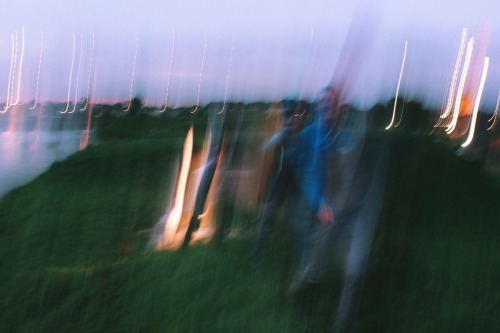
I was laughing so hard that’s why it’s so blurry, but I still kind of like it? I miss these guys and our late night adventures.
A mathematician, a physicist, and an engineer were in a hotel for a convention.
Then, in the middle of the night for no apparent reason, a fire breaks out in the engineer’s wastebasket. The engineer rushes over to the bathroom, empties out the ice bucket, fills it with water and pours it into the trash can, dousing the fire. Satisfied that the problem was solved, the engineer goes back to sleep.
Shortly thereafter, a fire broke out in the physicist’s wastebasket. The physicist rushes to the bathroom, whips out his calculator, frantically does a few computations, pulls out a cup, fills it to a precisely measured level, and rushes back to the wastebasket, pouring the water onto the fire. As the last drop hits the flame, the fire goes out. Satisfied that the problem was solved, the physicist goes back to sleep.
Finally, a fire breaks out in the mathematician’s room. The mathematician rushes to the bathroom, sees the ice bucket, sees a cup, sees the water faucet. Satisfied that the problem could be solved, he goes back to sleep.
The mistakes you’ve made do not invalidate everything you say/do/achieve for the rest of your life.
(via michael-julian)
friend: I don't particularly like Sappho's poetry--
me: But you will lie dead, nor will there be any memory of you, now or in the future, for you will have no share in the Pierian roses, but invisible, in the house of Hades, you will wander to and fro, fluttering with the shadowy ghosts,

Hundreds of you sent in questions for my live conversation with three astronauts and NASA’s chief scientist on Tuesday. Thanks! The most common question was: “What happens when you get your period in space?”
I didn’t end up asking this question because
a) the question itself has a lot of historical baggage b) the answer is pretty boring
But because people seemed genuinely curious, I decided to answer it here.
First, a bit of history…
In the early days of space flight, menstruation was part of the argument that women shouldn’t become astronauts.
Some claimed (1) that menstruation would effect a woman’s ability, and blamed several plane crashes on menstruating women. Studies in the 1940s (2,3) showed this was not the case. Female pilots weren’t impaired by their periods. But the idea wouldn’t die. In 1964, researchers from the Women in Space Program (4) still suggested (without evidence) that putting “a temperamental psychophysiologic human” (i.e. a hormonal woman) together with a “complicated machine” was a bad idea.
Others raised concerns about hypothetical health risks. They feared that microgravity might increase the incidence of “retrograde menstruation.” Blood might flow up the fallopian tubes into the abdomen, causing pain and other health problems. No one actually did any experiments to see if this really would be a problem, so there wasn’t any data to support or refute these fears.
Advocates for women in space argued that there had been a lot of unknowns when humans first went to space, but they sent men up anyway. Rhea Seddon, one of the first six women astronauts at NASA, recalled during an interview:
We said, “How about we just consider it a non-problem until it becomes a problem? If anybody gets sick in space you can bring us home. Then we’ll deal with it as a problem, but let’s consider it a non-problem.”
Just to give you a sense of the culture surrounding female astronauts back then, here’s an excerpt of a 1971 NASA report about potential psychological problems in space. Researchers Nick Kanas and William Fedderson suggest there might be a place for women in space:
The question of direct sexual release on a long-duration space mission must be considered. Practical considerations (such as weight and expense) preclude men taking their wives on the first space flights. It is possible that a woman, qualified from a scientific viewpoint, might be persuaded to donate her time and energies for the sake of improving crew morale; however, such a situation might create interpersonal tensions far more dynamic than the sexual tensions it would release.
Kanas, now an emeritus professor of psychology at UCSF, told me this was tongue-in-cheek — part of a larger discussion about the problem of sexual desire in space (5). Still, it’s surprising this language was included in an official NASA memorandum. Even advocates for women in space were caught up in this kind of talk. In a 1975 report for the RAND corporation, Glenda Callanen argues that women have the strength and intelligence to become astronauts. But here’s how she begins the report’s conclusion:
It seems inevitable that women are to be essential participants in space flight. Even if they were only to take on the less scientific parts of the space mission, or if they wished only to help “colonize” distant planets, their basic skills must still prepare them to perform countless new tasks.
In a culture where these statements were unremarkable, it’s easy to imagine that questions about menstruation weren’t purely motivated by scientific curiosity.
In 1983, 22 years after Alan Shepard became the first American to go to space, Sally Ride left earth’s atmosphere. She told an interviewer:
I remember the engineers trying to decide how many tampons should fly on a one-week flight; they asked, “Is 100 the right number?” “No. That would not be the right number.”
So what DOES happen when you get your period in space?
The same thing that happens on Earth! In the last three decades of female space flight, periods in space have been normal — no menstrual problems in microgravity.
Notes:
RE Whitehead, MD. “Notes from the Department of Commerce: Women Pilots.” The Journal of Aviation Medicine 5 (Mar-Dec 1934):48.
RS Holtz, MD. “Should Women Fly During the Menstrual Period?” The Journal of Aviation Medicine 12 (Sept 1941):302.
J Cochrane. “Final Report on Women Pilot Program.” 38.
JR Betson and RR Secrest. “Prospective women astronauts selection program.” American Journal of Obstetrics and Gynecology 88 (1964): 421–423.
Kanas and Fedderson’s 1971 report went on to conclude: “Information regarding women during periods of stress is scanty. This lack, plus previously mentioned problems, will make it difficult for a woman to be a member of the first long-duration space missions. However, it is just as unlikely to think that women cannot adapt to space. Initial exploration parties are historically composed of men, for various cultural and social reasons. Once space exploration by men has been successfully accomplished, then women will follow. In preparation for this, more information should be compiled regarding the physiology and psychology of women under stressful situations.”




Muharram 2014/1436 karbala, Iraq
We don’t want to conquer space at all. We want to expand Earth endlessly. We don’t want other worlds; we want a mirror. We seek contact and will never achieve it. We are in the foolish position of a man striving for a goal he fears and doesn’t want. Man needs man!
Solaris (1972), Andrei Tarkovsky (via giveintosin)
I think I’ve just leveled up with my video editing skills. Anyone else like experimental industrial noise music? Tbh this was inspired by the 1972 film Solaris by danceswithcircles http://ift.tt/1jgzIY6





















